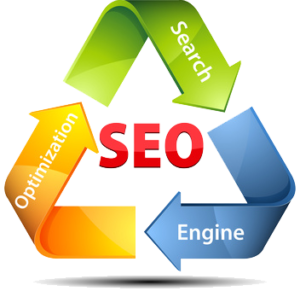SEO is a constantly changing field. One of your SEO goals should be keeping up with the latest trends, research, and best practices.
Search engines like Google index web pages to find information that can answer a search query. These pages are then displayed in a search results list. Contact SEO Baton Rouge now!

Keywords are a fundamental part of search engine optimization (SEO) and are used to determine how your website ranks in SERPs. This is why keyword research is one of the first steps in an effective SEO campaign. Using the right keywords in your content is vital, as it helps attract the most qualified visitors to your site.
There are different types of keywords, based on the intent that users have behind their searches. There are four commonly recognized intents, including informational, navigational, commercial, and transactional. Understanding these categories can help you tailor your content to your audience’s immediate needs.
Using the right keywords in your content is essential to your business’s success, as it helps you rank higher in search engines and drive traffic to your site. However, it can be difficult to understand how keywords work and how to use them effectively. This article will guide you through the basics of keywords and how to choose the right ones for your business.
When performing keyword research, it’s important to identify your target audience and their demographics. This will allow you to create targeted content that speaks directly to your audience’s interests and pain points. In addition, it will ensure that your content is relevant to the searches performed by your audience.
There are several ways to perform keyword research, including a combination of tools and manual methods. Manual techniques involve analyzing competitor pages and researching user searches on Google to identify opportunities. This method can be time-consuming and requires a lot of effort. Nevertheless, it’s still worth the investment, as it can lead to significant improvements in search engine rankings and traffic.
The first step in performing keyword research is to compile a list of keywords. This list should include both broad and niche terms. Generally, broad terms have higher search volumes and are more competitive than their niche counterparts. However, a large volume of traffic is not always necessary to achieve your goals.
Next, you should narrow down your list of keywords by identifying the phrases that best describe your product or service. For example, a search for “how to write a blog post” is more targeted than a query for “blogging tips.” Long-tail keywords are also more specific and often have less competition than their head term counterparts. These terms are more likely to reveal a buyer’s intent, which can be beneficial for your business.
Content
Content is one of the most important elements of SEO, and it can help your business achieve its online goals. By carefully aligning your content with user intent, you can boost your search engine visibility and attract organic traffic. But what exactly is content and how do you optimize it for SEO?
SEO is a digital marketing strategy that uses keywords to improve your website’s ranking on search engines. It is important to include relevant keywords in your content, but you also need to ensure that your content is readable and provides value to your audience. SEO can be a long-term process, but it can be very effective if you follow the right guidelines.
While some marketers may argue that SEO is dead, it’s still an important component of a well-rounded online marketing strategy. Search engines play a vital role in the buying cycle, and SEO is an excellent way to increase your visibility and attract new customers. By following the tips in this guide, you can optimize your content for search engines and create a strong online presence that will grow your business.
What is the Importance of Content?
Search engines are a fundamental part of people’s lives, and the internet is home to more than 40,000 searches every second. These searches are looking for something specific, and the content that comes up in response to them can have a profound impact on both users and businesses.
The purpose of a search engine is to connect users with the information they need. This can be a product listing, review, news story, or anything else that can answer a question or solve a problem. In order to do this, search engines need to be able to identify the most relevant results for each query. This is why quality content is so important for SEO. It enables search engines to provide the best possible experience for their users, and it helps businesses establish their subject matter expertise and build trust with potential customers. By using targeted keywords in your content, you can get in front of the right people at the right time.
Link building
Link building is an essential part of any SEO strategy. Search engines use links as a way to determine the relevance of a website and its content. A high number of links from reputable sources will improve your chances of ranking highly on search engine results pages. However, you need to know the right techniques for effective link building. There are many strategies you can try, including email outreach and obtaining links through guest blogging.
Aside from helping you rank higher in search results, effective link building can also help you build a stronger brand. This is because a strong brand can be viewed as an authority in its field, and a valuable asset for potential customers. This is why SEO should always be approached from a branding perspective and not just as an opportunity to rank better in search.
In order to succeed in link building, you must understand your audience and their needs. This will allow you to create content that is relevant and useful for them. It will also help you identify which websites they visit and which words they use in searches. Ultimately, this will lead to more visitors and better rankings.
When it comes to linking, it is important to remember that a link should be natural and related to the page you are trying to promote. Avoid using overly commercial keywords in your anchor text, as this will hurt your credibility and may even get you banned from certain search engines. You should also avoid spamming comments or using PBNs, as these tactics can be seen as unnatural by the search engines and will not give you the value that you need.
Another important factor to consider is the quality of your content. You should aim to produce high-quality, informative content that is unique and will be of value to your audience. This will help you earn more links from reputable sites, and you will be rewarded for your hard work.
The best ways to get high-quality links are through content creation and social media promotion. The former involves creating content that is based on your industry expertise and promoting it to attract attention from other people in the same field. This will help you establish your business as an expert in the field and gain more traction for your website.
Analytics
SEO analytics is the process of tracking and analyzing data with the goal of improving your website’s search engine optimization. There are many different tools available for this, but one of the most popular is Google Analytics. These tools can help you understand what’s working and what’s not, and can help you maximize ROI on your SEO efforts.
A good place to start is by analyzing the keywords that are driving traffic to your site. Using the SEO Dashboard, you can see all of the keywords that are ranking for your content, as well as their position in the SERPs. You can also view the distribution of the keywords, as well as how many are in the Top 3, Top 10, and Top 100.
Another important metric is dwell time, which showcases how long visitors stay on your page. This metric is a great indicator of the quality of your content, and can tell you whether or not it’s engaging. If your content is not engaging, it’s likely that users will bounce from your site.
You can track the performance of your SEO efforts by creating a custom SEO dashboard in Google Analytics. These dashboards can be customized to focus on the SEO KPIs that align with your marketing goals. For example, if your goal is to keep visitors on your site longer, you can use the All Pages report to view your site’s top landing pages and analyze the average time on each page.
Syncing your Google Analytics and Search Console accounts can provide you with additional SEO insights. By combining this information, you can identify opportunities for improvement and fine-tune your SEO strategy accordingly. You can also monitor the progress of your SEO efforts using quantifiable metrics, such as site speed and keyword rankings.
If you’re new to SEO, it can take weeks or even months for your updates to show results. This can make it difficult to evaluate your SEO efforts, especially if you don’t have the right tools to track them. One tool that can help you with this is Databox, which offers an SEO dashboard that lets you visualize your performance data in real-time.
